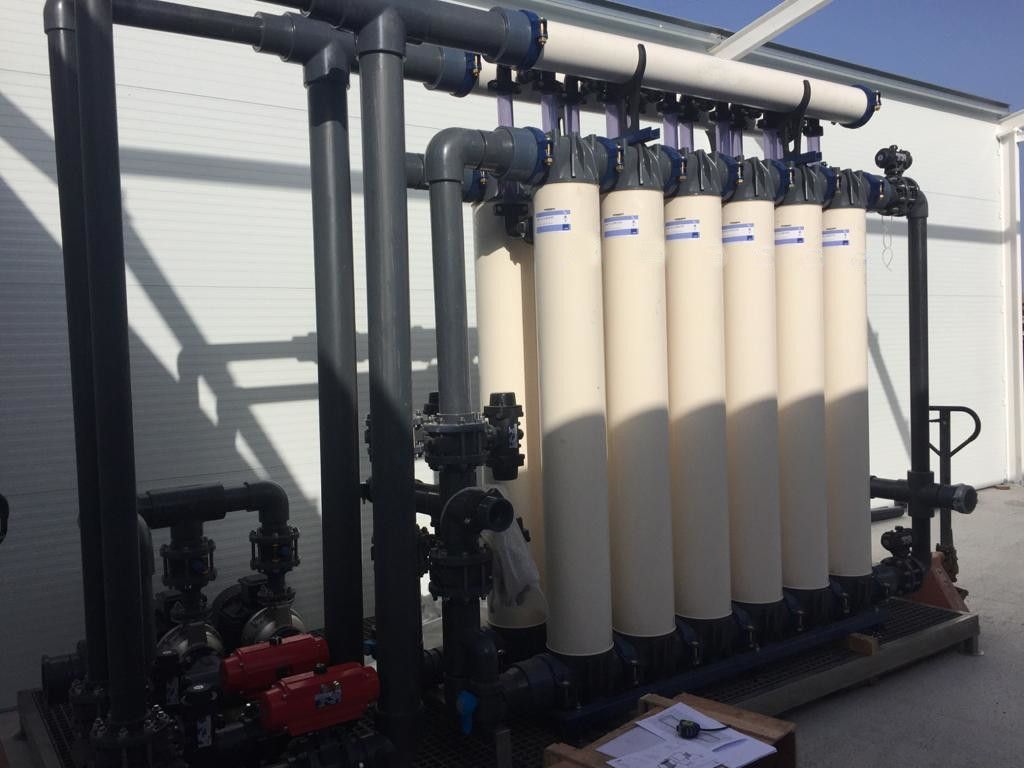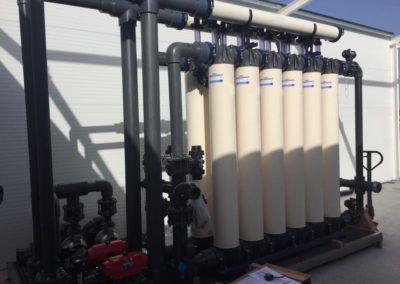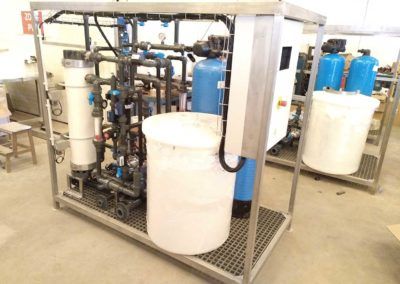Ultrafiltration
Ultrafiltration is a membrane filtration process that removes suspended solids, dissolved solids, bacteria, viruses, endotoxins, and other pathogens to produce pure water with low TDS content.
Ultrafiltration employs hydrostatic pressure to force water through a semipermeable membrane. Suspended solids and high molecular weight solutes are retained, while water and low molecular weight solutes pass through the membrane.



These membranes operate at lower pressures than reverse osmosis, as they are unable to retain TDS below 0.1 microns (μm). They are highly effective as a pretreatment for Reverse Osmosis.
Common stages used in this technology:
- Pretreatment
- Separation Membrane
- Chlorination

Born out of the need to use water correctly and manage it responsibly.
+34 968 58 07 62
info@eneragua.com
C/ José Lopez Portillo, 18. 30709 – Roldán. Murcia. Spain



